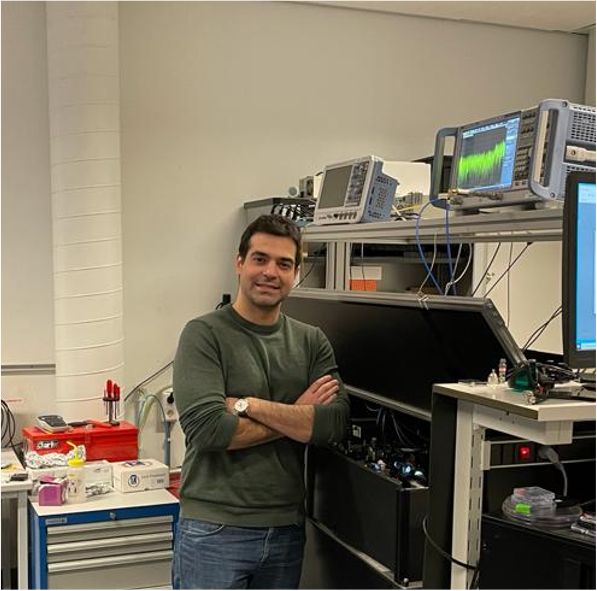ERC Proof of Concept grant for Farbod Alijani
Farbod Alijani, Associate Professor at the department of Precision and Microsystems Engineering, has been awarded a Proof of Concept grant by the European Research Council. He is one of 55 ERC grant holders that are set to receive top-up funding in this round to explore the commercial or innovation potential of the results of their EU-funded research.
The project Farbod Alijani will work on using this grant is called GRAPHFITI (Graphene to fight antimicrobial resistance). Today, antimicrobial resistance is emerging as a global burden, endangering our lives. In the fight against this crisis, rapid Antimicrobial Susceptibility Testing (AST) plays a crucial role. Although effective in discerning the right concentration of antibiotics required to inhibit the growth of a pathogen, conventional AST techniques are not fit for point-of-care, since they are slow and require large microbial inocula. The advent of graphene, and the ability to fabricate one-atom thick membranes, has made it possible to make miniaturised sensors that are extremely sensitive to nanoscale forces. With his ERC proof-of-concept grant GRAPHFITI, Farbod Alijani aims at realising a proof-of-concept demonstrator comprising ultra-sensitive graphene biosensors that enables fast point-of-care screening of antimicrobial resistance.
About the ERC and the PoC grant
The European Research Council, set up by the European Union in 2007, is the premiere European funding organisation for excellent frontier research. Every year, it selects and funds the very best, creative researchers of any nationality and age, to run projects in Europe. The ERC also strives to attract top researchers from anywhere in the world to come to work in Europe. Proof of Concept grants, worth up to €150,000 each and open to ERC grant holders, can be used, for example, to establish intellectual property rights, investigate business opportunities or conduct technical validation.
- Read more about Farbod Alijani and his ERC Starting Grant
- More about ERC en de PoC beurs
- Also read Vibrating membranes reveal their secrets



